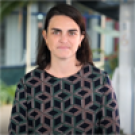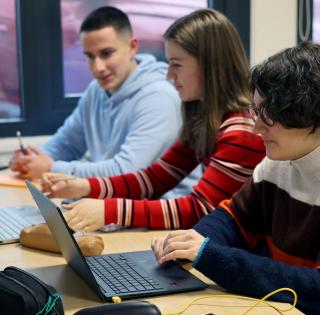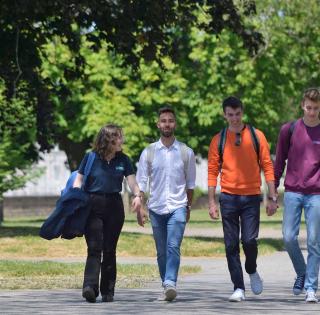
Antonin, can you remind us of the purpose of the ENSTARTUPS business incubator on the ENSTA Bretagne campus?
Antonin Raffarin:
In four years, out of the twenty or so ideas incubated, about half of the projects have already got off the ground or are poised to do so. The incubator above all provides an ideal environment for turning plans to start up a business into reality.
It accommodates a dozen project leaders at the same time, who benefit not only from support, guidance and advice, but also from access to the school’s scientific and economic networks. The aim is to support their successful development. The guidance offered paves the way for progress in stages, by jointly ticking all the boxes required to start up a business: idea, market, fund-raising, prototyping, business plan and so on. Project transformation, abandonment and failure are also par for the course where start-ups are concerned.
How is ENSTARTUPS relevant to engineering students?
Antonin: the point of ENSTARTUPS is also to inspire students to want to start a venture of their own and to train them in entrepreneurship. That encompasses discovery stages for everyone and various specialization options for the most motivated students. Sometimes, at the start of term, freshers come and see me who have already been bitten by the entrepreneurial bug. And it’s usually by giving business creation a go during their studies and the student competitions that they develop their curiosity and creativity and come up with new services or products. Some will go so far as to turn their idea into an entrepreneurial venture. That was how it was for my colleague Thomas and I. We got the idea for INOBO on returning from a period of study in Asia. The company was incubated on campus and successfully developed in 2018.

How long are the projects incubated for?
Antonin: It can vary. We do a full review of the situation with the project leaders two to three times in the year. Depending on how well things are progressing, the success potential is reassessed with them. We help them to get through the next stages and to either move forward with development or to call it a day. As manager of the incubator since 2017, I have monitored some twenty projects within it, met some fantastic people, and a third of the ideas have worked out. I’d like to applaud all these entrepreneurs for their audacity and tenacity.
Can you tell us about some of the projects that have worked and gone on to do well?
Antonin: Sure, several have. FIL&FAB, GWILEN, TRASH SURFBOARDS, IANIRA and ORPHIE are 5 examples of maritime start-ups that naturally chose the ENSTA Bretagne incubator and our close connection with the sea to design innovative solutions. Their purposes: reduce environmental impacts or facilitate underwater exploration.
Reducing environmental impact is also the focus of UMOJA with its 100% plant-based sneakers.Oui, plusieurs.
Which other incubated projects are you supporting?
Antonin: The projects supported concern three sectors: maritime, sustainable development and health.
- SPLASHELEC (under incubation) aims at making sailing accessible to people with disabilities and at automating foils -> http://www.splashelec.com/
- OX-EYE (under incubation) is a naval architecture eco-design office aimed at designing ships out of new materials
- ARKANEis a start-up led by two engineers with PhDs who are developing digital products integrating a layer of artificial intelligence in radar signal processing
- SEEDERAL technologies (under incubation) is the initiative of a young engineer from CentraleSupélec engineering school who is developing an electric tractor. A fund-raising campaign is in progress for manufacturing a prototype in 2022.
- Three surgeons from Brest teaching hospital (CHRU), together with a lecturer from ENSTA Bretagne, have come up with the idea of inventing a new type of plaster which would be made by 3D printing (under incubation)
- SKRAVIK (which means tern in Breton) is led by two naturalists, who organize various sea observation missions and would like to develop a new environmental solution for marine expeditions (under incubation)
- Two engineers with PhDs from ENSTA Bretagne are working on the idea of an eco-designed bicycle (under incubation)
- EHM (Efficient Hydrogen Motors): this is a new hydrogen-powered motor project (just recently joined the incubator), led by Didier Arénal.


















